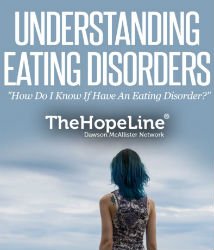Recognizing Eating Disorders in New Zealand Youth
Eating disorders represent a complex spectrum of conditions that affect many young people in New Zealand. Understanding the signs, symptoms, and risk factors is crucial for early intervention and support. Family eating disorder awareness plays a pivotal role in identifying these issues, as families can often provide the first line of defense through observation and communication. By fostering an environment where discussions about body image and mental health are encouraged, families can help mitigate the risks associated with these disorders.
In New Zealand, the impact of social media on eating disorders has garnered significant attention, highlighting the need for comprehensive education and awareness initiatives. Resources aimed at enhancing family eating disorder awareness are essential in equipping parents and guardians with the tools to recognize and address these challenges. For more insights on this topic, visit Social Media’s Impact on Eating Disorders in New Zealand.
Understanding Eating Disorders: An Overview
Eating disorders are complex mental health conditions that manifest through various eating behaviors, often associated with significant emotional and physical challenges. In New Zealand, youth are particularly vulnerable to these disorders, which can include anorexia nervosa, bulimia nervosa, binge-eating disorder, and other specified feeding or eating disorders (OSFED). Each type presents its own set of signs and symptoms that can affect individuals differently. Early recognition and intervention are essential, and family eating disorder awareness plays a crucial role in providing support.
In New Zealand, the prevalence of eating disorders among young people has raised alarms, with studies indicating that a significant number of adolescents experience these issues. Factors contributing to the development of eating disorders include societal pressures, body image concerns, and underlying mental health conditions such as anxiety and depression. Families can help by maintaining open lines of communication, educating themselves on the symptoms, and fostering a supportive environment for their children. For more information on eating disorders and their impact, visit the official Eating Disorders website.
Signs and Symptoms of Eating Disorders
Recognizing the signs and symptoms of eating disorders is crucial for early intervention. Common symptoms vary by disorder but may include drastic weight loss, preoccupation with food, and abnormal eating patterns. For instance, individuals with anorexia often exhibit extreme weight loss, fear of gaining weight, and a distorted body image. Those with bulimia may engage in bingeing and purging behaviors, while individuals with binge-eating disorder experience episodes of excessive eating without compensatory behaviors.
In New Zealand, youth may also display behavioral changes such as withdrawing from social activities, changes in mood, and a decline in academic performance. Families can play an essential role in identifying these symptoms by observing changes in their loved ones and initiating conversations about their eating habits. Encouraging open dialogue can help reduce stigma and promote understanding, which is vital in addressing these issues. For further resources, refer to Eating Disorders New Zealand.
Risk Factors Associated with Eating Disorders
Several risk factors contribute to the development of eating disorders in New Zealand youth. These can be categorized into biological, psychological, and sociocultural factors. Biological risk factors include a family history of eating disorders or other mental health conditions. Psychological aspects may involve low self-esteem, perfectionism, and a history of trauma, while sociocultural influences often stem from media portrayals of ideal body types and peer pressure.
In New Zealand, societal expectations regarding body image can significantly impact young people’s self-perception. Families can mitigate these risks by creating a healthy environment that promotes body positivity and self-acceptance. Encouraging children to engage in activities that celebrate diversity in body shapes and sizes can help foster a more inclusive mindset. For more insights into risk factors, visit Eating Disorders New Zealand.
The Role of Family in Supporting Recovery
Family involvement is vital in supporting young individuals struggling with eating disorders. Families can create a nurturing atmosphere that encourages open communication about food, body image, and emotional well-being. Engaging in family meals and discussing healthy eating habits can help normalize food-related conversations and reduce anxiety around eating.
In New Zealand, families can also participate in programs that promote eating disorder awareness, which can help them understand the complexities of these conditions. By attending workshops or support groups, family members can learn coping strategies and effective communication techniques. It’s essential for families to recognize that recovery is a process and that their support can significantly influence their loved one’s journey. To explore family resources, check out Eating Disorders New Zealand.
Barriers to Treatment for Youth with Eating Disorders
Accessing treatment for eating disorders can be challenging for youth in New Zealand due to various barriers. Factors such as stigma, lack of awareness, and limited availability of specialized services can hinder individuals from seeking help. Many young people may feel ashamed or embarrassed to discuss their eating habits, leading to prolonged suffering.
Additionally, families may face difficulties navigating the healthcare system or may not know where to find appropriate resources. It’s essential for families to advocate for their loved ones by seeking out mental health professionals who specialize in eating disorders. Encouraging youth to speak openly about their struggles and normalizing the conversation around mental health can help reduce stigma and promote treatment-seeking behavior. For guidance on treatment options, visit Eating Disorders New Zealand.
Prevention Strategies for Eating Disorders
Preventing eating disorders among youth in New Zealand involves a multi-faceted approach that includes education, awareness, and community support. Schools, families, and community organizations can collaborate to create programs that promote healthy body image and eating habits. Workshops that focus on media literacy can help young people critically assess the portrayal of bodies in media and develop a more realistic self-image.
Encouraging participation in sports, arts, and other activities can also foster a sense of belonging and self-worth that is not tied to appearance. Families should promote positive conversations about food, emphasizing balance and moderation over restriction. Engaging youths in cooking and nutrition education can also help them develop a healthy relationship with food. For more information on prevention strategies, visit Eating Disorders New Zealand.
Resources and Support for Youth and Families
Accessing support and resources is crucial for both youth and families dealing with eating disorders in New Zealand. Numerous organizations offer help, including counseling services, support groups, and educational resources. The Eating Disorders New Zealand website provides a wealth of information, including details on how to seek help, navigate treatment options, and connect with support networks.
In addition to professional resources, families can also benefit from local community support groups that foster a sense of solidarity and understanding. These groups can help families share their experiences, learn from one another, and develop strategies to support their loved ones. By leveraging both professional and community resources, families can create a robust support system that promotes healing and recovery for youth struggling with eating disorders.
FAQs
What are the common types of eating disorders among youth in New Zealand?
Common eating disorders among youth in New Zealand include anorexia nervosa, bulimia nervosa, binge eating disorder, and avoidant/restrictive food intake disorder. Each of these disorders presents unique signs and symptoms, making early recognition essential for effective intervention.
What are the early signs of eating disorders in young people?
Early signs of eating disorders can include drastic changes in weight, obsessive behavior around food and exercise, social withdrawal, and changes in mood or energy levels. Families should be aware of these signs and encourage open communication, as early intervention can significantly improve outcomes.
How can family eating disorder awareness contribute to prevention?
Family eating disorder awareness can play a crucial role in prevention by fostering an environment where discussions about body image, nutrition, and mental health are normalized. Educating family members about the risk factors and signs of eating disorders helps them to support their youth and identify issues early on.
What risk factors contribute to the development of eating disorders in youth?
Risk factors for developing eating disorders can include genetic predisposition, societal pressures, trauma, mental health issues, and family dynamics. Understanding these factors can help families recognize potential vulnerabilities in their youth and take proactive measures to support their well-being.
How can parents support their children who may be struggling with an eating disorder?
Parents can support their children by maintaining open lines of communication, fostering a positive body image, and encouraging healthy eating habits without focusing on weight. Additionally, seeking professional help from a healthcare provider or counselor experienced in eating disorders is crucial for effective treatment.
What role does peer influence play in the onset of eating disorders?
Peer influence can significantly impact the onset of eating disorders, particularly during adolescence when young people are highly susceptible to social pressures. Friends can affect body image perceptions and eating behaviors, so fostering a supportive peer environment is essential to mitigate these risks.
Where can families find resources for eating disorder awareness and support in New Zealand?
Families in New Zealand can find resources for eating disorder awareness and support through organizations such as the New Zealand Eating Disorders Clinic, ANZAED (Australia and New Zealand Academy for Eating Disorders), and local mental health services. These organizations provide valuable information, support networks, and treatment options for those affected by eating disorders.
References
- Eating Disorders Association of New Zealand – A comprehensive resource offering information on eating disorders, including signs, symptoms, and support services available in New Zealand.
- Ministry of Health New Zealand – Eating Disorders – Official government resource that provides guidelines and information on managing and understanding eating disorders in the context of New Zealand’s health system.
- Mental Health Foundation of New Zealand – Eating Disorders – Offers insightful resources and support for individuals and families affected by eating disorders, including risk factors and treatment options.
- Youthline New Zealand – A support service for youth that includes information on mental health issues such as eating disorders, along with helplines and counseling services.
- Centre for Eating Disorders Research – University of Auckland – A research center focused on understanding eating disorders, their causes, and effective treatments, contributing to the body of knowledge in New Zealand.









Recent Comments